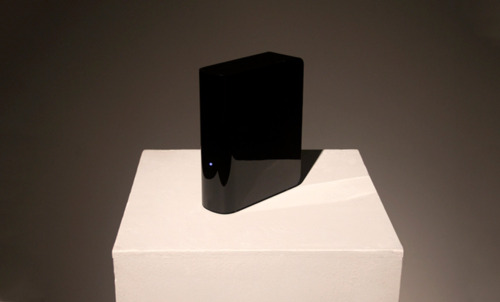We can expect at least another 10 years of unbridled and irrational fear about the threat of cyber war before things calm down.
That’s according to security expert Bruce Schneier, who reckons it will be people’s attitudes to the threat of hackers, terrorists and rogue nations that will grow up first, and essentially help make us safer, before the technology that might be used to stop potential attacks matures.

He said the new generation, which has grown up in the immediate aftermath of 9/11, will be better adjusted and more rational about the threat of potential attacks.
Speaking at The Register and Intel Live 2011 in London last week, Schneier also blamed senior political and military figures, the security industry and headline writers for inflating fear to unreasonable proportions.
“We’ve had a decade of terrorists and ‘we are all going to die’ in the US – it’s been terrible… it’s very different to what you might see in Israel or here in the UK during The Troubles, where there’s a very different mentality,” Schneier said.
“It takes a generation that grew up in that mentality to recognise it and to change it. I do think it will change; it’s more perception than reality, but it takes a new group to change it.”
Schneier, currently BT security chief and with a long and distinguished career in security, has been a persistent critic on his blog and in the media of overinflated fear-mongering about cyber war.
Schneier didn’t discount or downplay the risk of cyber war at Live 2011, but instead took issue with a phrase that’s widely bandied about, but actually quite hard to define.
While people have claimed cyber war is already in progress or that we are in the middle of a “cyber Katrina” – referring back to the hurricane and following bureaucratic inertia that cripple New Orleans in 2005 – he noted that “wars” require government sponsors, and so far there is no proof that any of the larger-scale attacks on computer systems has received that level of backing.
Instead, he said, while we’re not fighting a cyber war as such, we are seeing war-like tactics used in broader cyber conflicts.
He pointed to China, which was suspected of launching a DoS on Gmail in 2010; there was no proof, though, that it was an official policy. “There are lot of attacks emanating from China, but those paying attention believe they are less state-sponsored than state-tolerated – people who attack with impunity but who pass anything they find on to their handlers,” Schneier said.
On the other side of the Bamboo Curtain, there’s been Stuxnet – a worm reputedly authored by the US and Israel and used to take down Iran’s Bushehr nuclear power plant.
Complicating the picture is the fact that the weapons and tactics of cyber war do not rest in the hands of governments. Individuals – those with a grudge or hacktivists like Anonymous – are in on the act.
The 2007 denial of service attack on Estonian government system has been frequently quoted as an example of cyber war waged against a nation. It was a good example given the on-going levels of animosity between Russia and its former Soviet republic. The attacks, though, were work of just one person: a lone student, and not even a Russian at that. He was an Estonian student with a beef against the government over a WWII soviet war memorial. Also, there were the attacks on financial institutions that wouldn’t handle payments of WikiLeaks once the site fell foul of the US government.
New-age armaments
Schneier is not complacent. He doesn’t say that cyber war won’t happen – rather, that we are still in the early stages of planning. The US Department of Defense, for example, has established a Cyber Command and there’s talk of China wanting to dominate cyberspace. He says the difference is that cyber war will not exist in isolation of an actual war; when the tanks start rolling then computing infrastructure will be become just another theatre.
“I’m not saying cyber war will never exist; preparing for cyber war is reasonable… having a US cyber command makes sense. When war breaks out it will occupy all theatres,” he said.
Schneier said the difference is how one evaluates this complex situation, the defensive measures deployed, and steps that the really big players – such as nations – can take to diffuse the situation.
On defence, it pays for certain players not to be simply “as secure as everybody else” but to ensure they have absolute security. This applies to organisations like those financial institutions targeted by WikiLeaks fanbois, attacked on ethical or political grounds, or on the basis of anger.
At a national level, Schneier also endorsed an idea from former US cyber-czar Richard Clark, who has proposed cyber treaties between countries that would outline certain agreements, for example no first use of weapons or no attacks against civilian infrastructure.
“Even a cyber-war hotline would be a good idea between the various countries cyber commands,” he said. ®
Article source: http://go.theregister.com/feed/www.theregister.co.uk/2011/11/29/bruce_schneier_cyber_war_hype/

